Are you considering asking your employer for tuition reimbursement but unsure how to get started? Crafting a well-organized letter can help you communicate your request clearly and professionally. In this article, we'll walk you through a sample letter template that outlines all the essential elements to include, ensuring your request stands out. Ready to learn how to make your case for tuition reimbursement? Let's dive in!

Purpose and Justification
Tuition reimbursement programs are offered by many employers to assist employees seeking to enhance their skills through education. These programs typically cover a portion or the entirety of tuition fees for courses taken at accredited institutions, focusing on professional development relevant to the employee's role. The justification for requesting tuition reimbursement includes demonstrating how the coursework directly correlates with job performance, aligning with company goals, and showcasing potential contributions to team success. Additionally, employees often reference specific skills or knowledge acquired that can improve productivity, innovate processes, or lead projects effectively, ultimately benefitting the organization's overall performance and growth.
Course Details and Relevance
Tuition reimbursement requests often revolve around specific course details and their relevance to the employee's current role or career advancement opportunities within the organization. For instance, a project management certification course from the Project Management Institute (PMI) enhances skills in areas such as budget management, risk assessment, and leadership. The course typically spans 35 hours (a requirement for certification) and provides essential tools for efficiently overseeing projects in various industries. Aligning newly acquired knowledge with the organization's objectives, such as improving team workflows or enhancing client interactions, showcases the direct benefits of professional development. Furthermore, successful completion may lead to future promotions or increased responsibilities, ultimately benefiting the employer as well.
Cost Breakdown and Budget
Tuition reimbursement requests often involve a detailed cost breakdown and budget allocation. A standard tuition fee for a graduate program can range from $5,000 to $30,000 per year, depending on the institution's prestige and location, such as Ivy League universities or state universities. Additional expenses include course materials, averaging around $200 to $600 per semester. Transportation costs for commuting, relevant to urban campuses, can vary significantly based on distance, potentially adding another $100 to $300 monthly. Furthermore, online courses may incur different fees, like technology or platform fees, typically ranging from $50 to $150 per course. Providing a comprehensive budget helps illustrate financial responsibility and commitment to academic progress while justifying the reimbursement request to the employer or educational institution.
Benefits to the Organization
Tuition reimbursement programs enhance employee skill sets, leading to increased productivity and innovation within organizations. By investing in employees' education, organizations witness a boost in employee engagement and loyalty, significantly reducing turnover rates. Studies show that companies with tuition assistance programs experience a workforce with higher levels of job satisfaction (up to 60% increase), fostering a positive work environment. Furthermore, a skilled workforce can directly correlate with improved performance and the company's overall success in the competitive market. Financially, organizations save on recruitment costs, as retaining qualified employees is often more cost-effective than hiring new staff. Additionally, knowledge acquired through tuition reimbursement directly applies to organizational initiatives, driving efficiency and promoting a culture of continuous learning and development.
Formal Request and Next Steps
Tuition reimbursement programs provide financial assistance for employees pursuing education related to their job duties. Many companies, such as Google and IBM, offer these programs to support professional development and enhance workforce skills. The reimbursement amount often covers tuition expenses, which can range from $1,000 to $25,000 annually, depending on company policy. Employees typically need to submit documentation, including enrollment confirmation, grades, and payment receipts, to initiate the reimbursement process. It's essential to follow specific guidelines outlined in the employee handbook to ensure a smooth application, and timelines for submission vary by organization. Clear communication with the HR department or a designated reimbursement coordinator is crucial for understanding eligibility criteria and required next steps, leading to timely processing of the request.

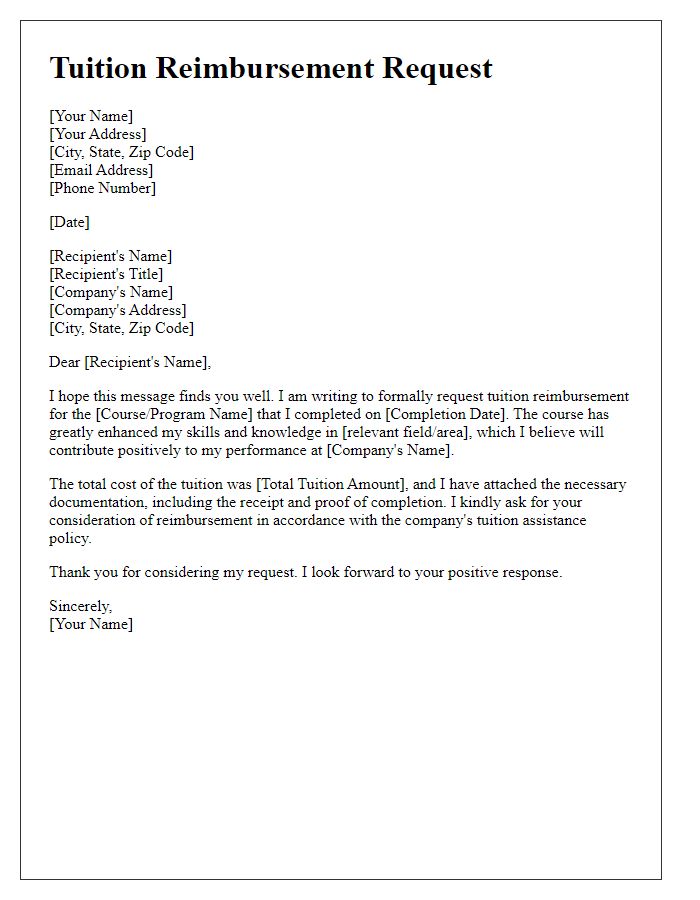
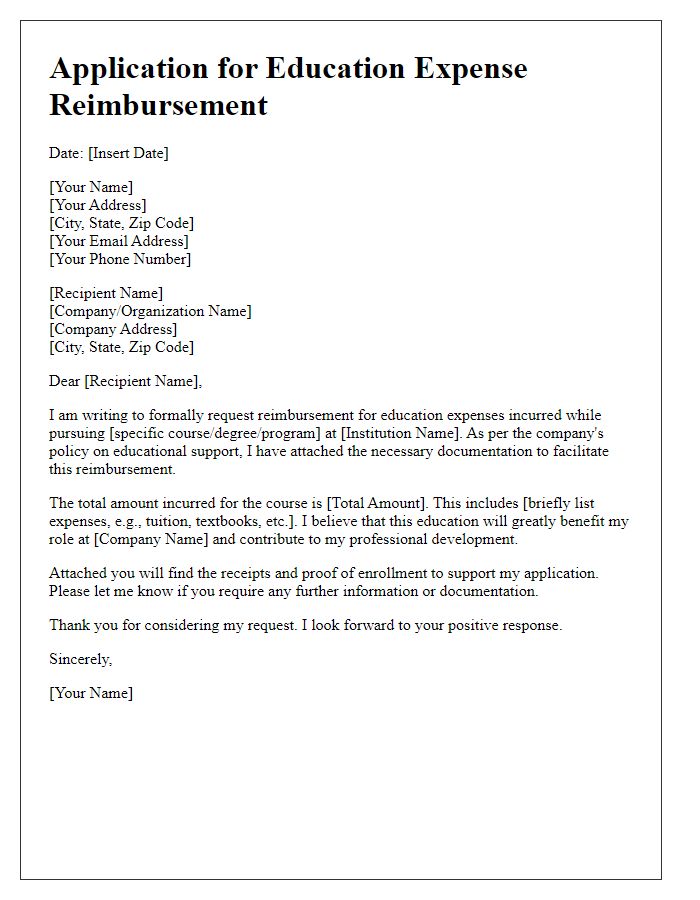
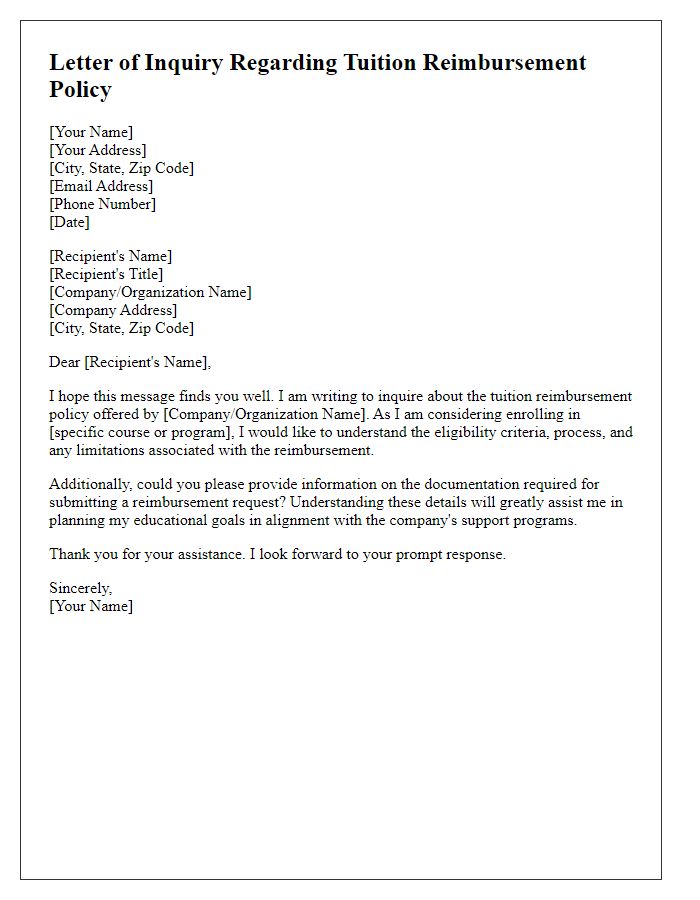
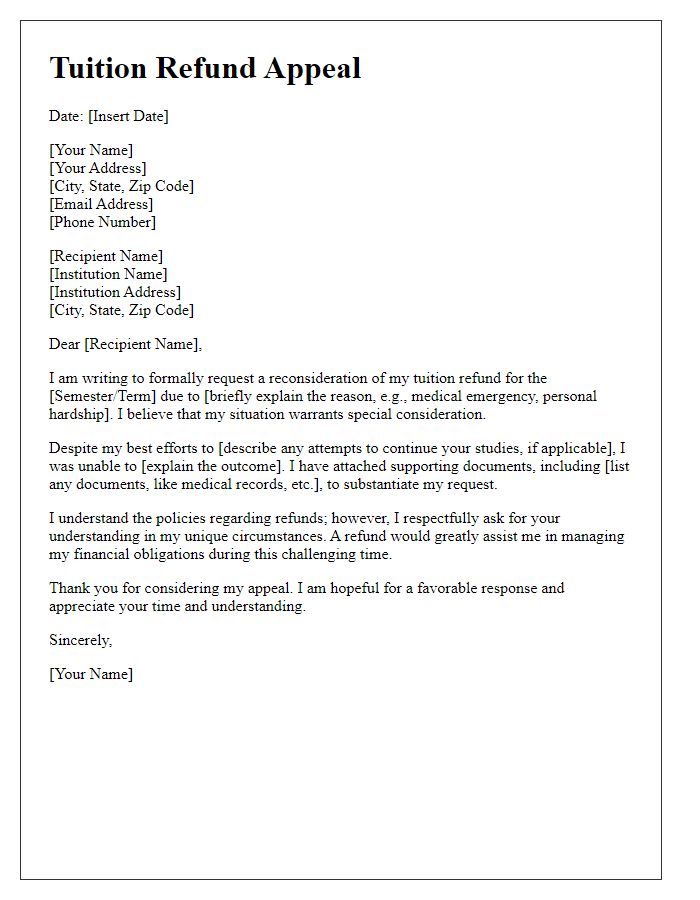
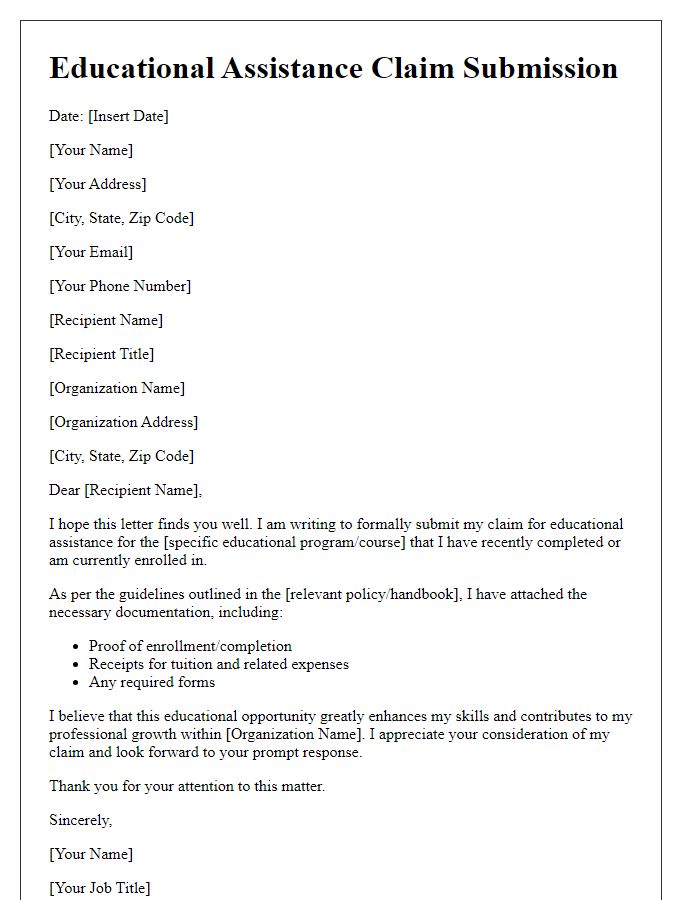
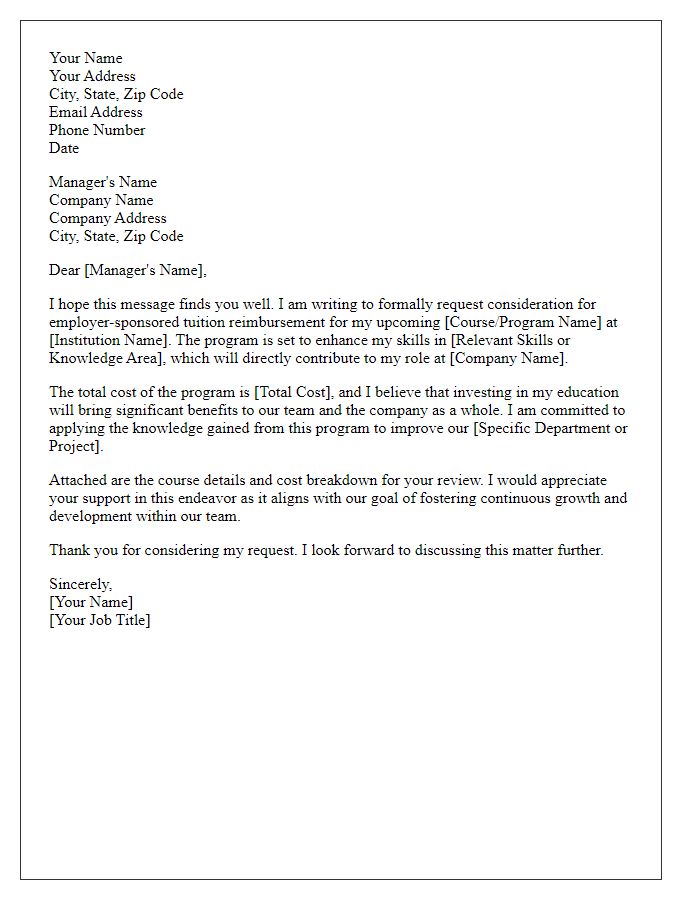
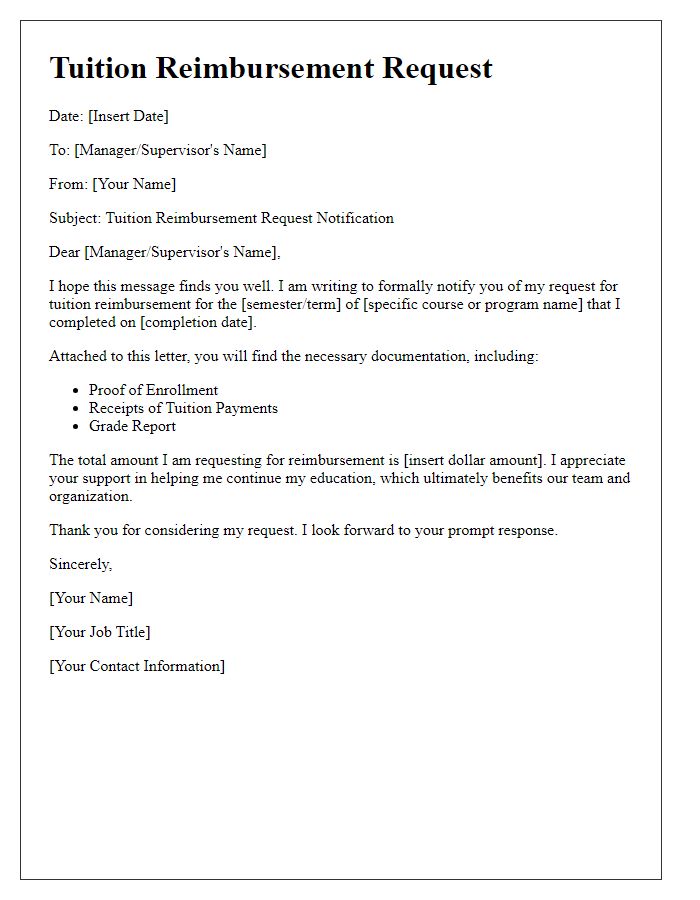
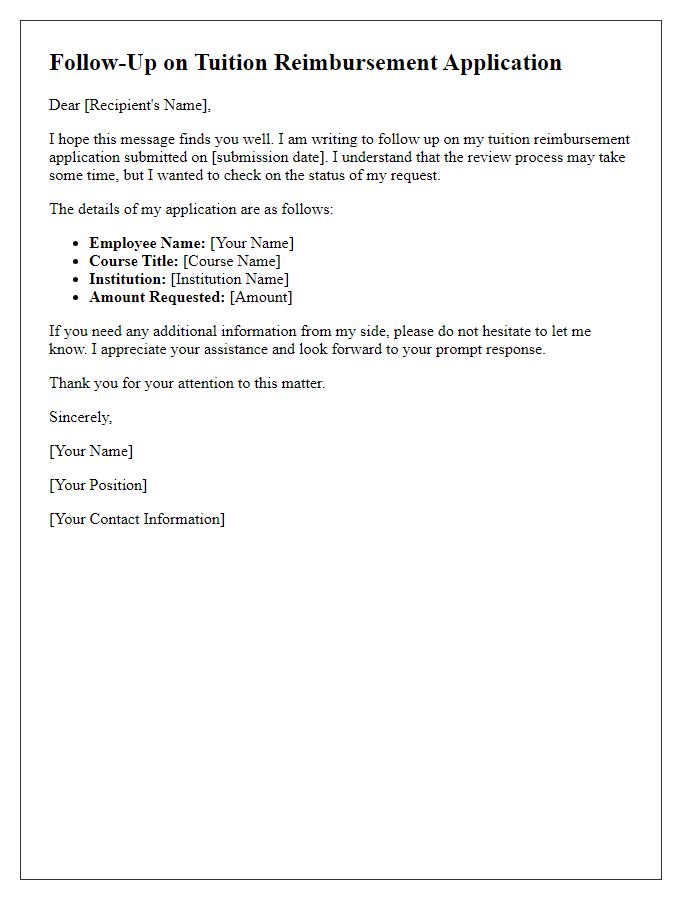
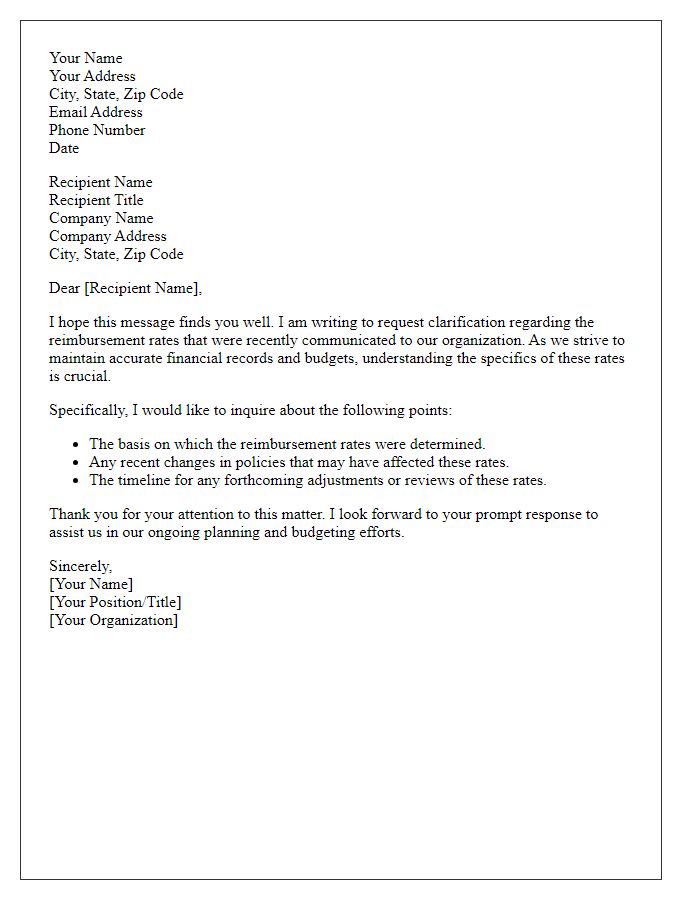
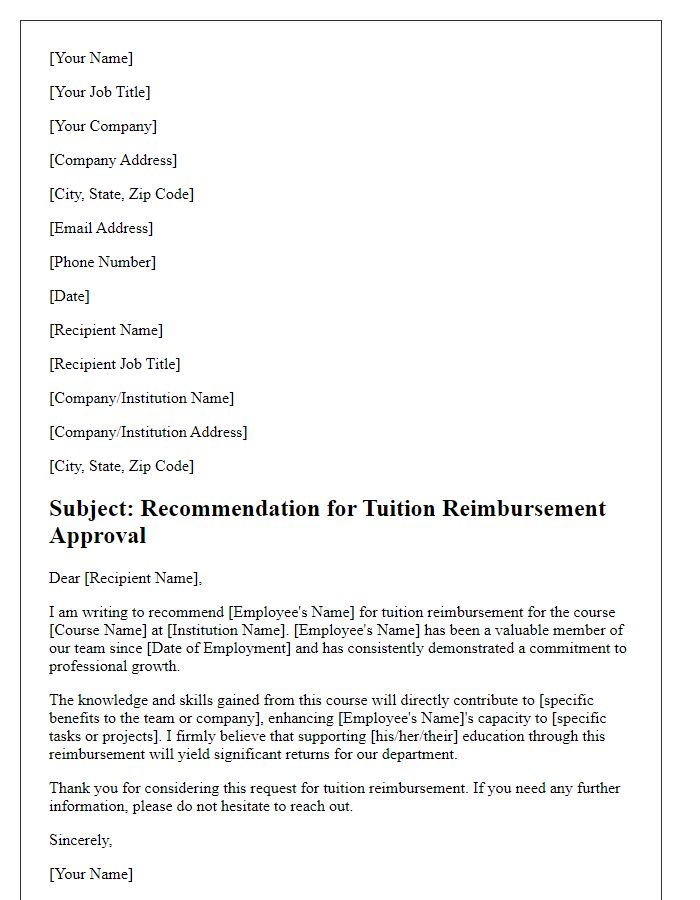


Comments